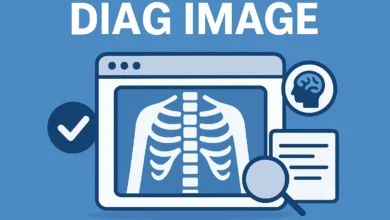Master the Craft: Welding Training Schools Unveiled

As you consider a career in welding, it’s crucial to explore the training that sets the foundation for your skills and certifications. Accredited welding schools equip you with more than just the basics of joining metals; they immerse you in a curriculum designed around the latest technological advancements and safety protocols. But how do you decide which program matches your aspirations, and what can you expect during your schooling? Let’s uncover the layers that define top-tier welding training schools and discover how these institutions mold novices into sought-after professionals in a competitive field. What will you find as we take a closer look at their offerings?
Exploring Welding Career Opportunities
Exploring welding career opportunities opens the door to a diverse range of high-demand, technical roles in industries like construction, automotive, and aerospace. As you delve into this field, it’s crucial to understand the industry demands that dictate the pace and quality of work. In construction, for instance, you’ll find that projects often require precise, durable welds capable of supporting massive structures under various stresses. Automotive and aerospace sectors demand even more precision due to the safety-critical nature of their products.
Adhering to safety standards isn’t just mandatory but central to your professional growth and personal safety. You must familiarize yourself with the specific protocols, such as the American Welding Society (AWS) standards, which cover a broad spectrum of welding practices and materials. Mastery of these standards ensures that your work not only meets industry demands but also passes rigorous safety inspections.
Furthermore, as industries evolve, staying updated with the latest welding technologies and techniques is indispensable. This continuous learning helps you maintain relevance in a competitive job market and meet the increasingly sophisticated requirements of modern engineering projects. Diving into welding as a career means committing to a path of ongoing education and compliance with the highest safety and performance standards.
Essential Skills for Professional Welders
To excel as a professional welder, you’ll need to master a set of essential skills ranging from basic metal cutting to advanced robotic welding techniques. Precision in these skills isn’t just about craftsmanship; it’s about understanding the technical aspects that ensure strength and durability in your welds. You’ll need to be adept at reading and interpreting blueprints and technical drawings, a fundamental skill that guides the welding process from start to finish.
Safety protocols are non-negotiable. You must internalize and adhere to stringent safety standards to protect yourself and others around you. This includes knowing how to properly handle and maintain equipment to prevent accidents and ensure operational efficiency. Regular tool maintenance is critical; it ensures that your welding tools are in optimal condition, which significantly reduces the risk of malfunctions and safety incidents.
Furthermore, you’ll need to develop a keen eye for detail and a steady hand. Welding requires a level of finesse that comes from years of practice and continuous learning. Each piece you weld demands precision, and each metal type might require a different technique or approach. Staying updated with the latest welding technologies and continuously refining your skills are your stepping stones to becoming a top-notch professional in this field.
Top Rated Welding Training Schools
If you’re aiming to become a skilled welder, attending a top-rated welding training school can significantly enhance your expertise and career prospects. It’s crucial to select a school that not only delivers comprehensive training but also holds the right accreditations. School accreditation is a stamp of approval that ensures the institution meets or exceeds the quality standards set by the industry. This is your assurance that the educational programs are up to par and recognized nationally or even globally.
Furthermore, the expertise of instructors plays a pivotal role in your learning experience. Top schools boast faculty members who aren’t just educators, but industry experts with years of practical experience under their belts. They bring invaluable insights and real-world scenarios into the classroom, providing you with a richer, more applied understanding of the craft.
When you’re evaluating potential schools, check their accreditation status and review the credentials of their teaching staff. It’s also beneficial to look into partnerships and endorsements from major industry players, as these connections can offer enhanced training resources and possibly better employment prospects post-graduation. Remember, the quality of your education will directly influence your future in the welding industry. Choose wisely to ensure you’re well-equipped for the challenges and opportunities ahead.
What to Expect From Welding Courses
Now that you’re familiar with selecting a top-notch welding school, let’s examine what you can expect from the courses offered. Course duration varies significantly, ranging from a few weeks for basic certifications to several years for advanced apprenticeships. You’ll need to commit time both inside the classroom for theoretical learning and in the workshop for hands-on practice.
Safety protocols are strict and form a crucial part of your training. From day one, you’ll learn the importance of protective gear, including helmets, gloves, and safety glasses. Instructors will stress the significance of maintaining a clean and organized workspace to prevent accidents. Each session starts with a safety briefing, and you’re expected to adhere to these guidelines meticulously.
The technical content of the courses will cover various welding techniques—MIG, TIG, Stick, and Flux-Cored—each requiring a different skill set and application. You’ll start with basic joint configurations and gradually move towards more complex projects as your proficiency improves.
Throughout your training, you’ll also gain insights into the metallurgical aspects of different materials, understanding how metals behave under heat and how to control their cooling process. This knowledge is pivotal for achieving strong, durable welds in your future career.
Advantages of Certified Welding Programs
Enrolling in a certified welding program offers you a competitive edge in the job market, ensuring you meet industry standards and acquire essential skills efficiently. These programs are meticulously designed to align with the latest safety standards, guaranteeing that you’re not only proficient but also prioritizing workplace safety. Industry certifications, which you’ll gain upon completion, aren’t merely accolades; they’re proof of your expertise and dedication to your craft, recognized across the sector.
These certifications are crucial—they validate your skills to potential employers and significantly enhance your resume. You’ll find that many employers prefer or even require these credentials. By holding them, you demonstrate your commitment to quality and safety, key concerns in any welding project. Additionally, certified programs often provide the most current training on new technologies and materials, keeping you ahead in a rapidly evolving field.
Financial Aid and Scholarships Options
While certifications enhance your resume, exploring financial aid and scholarship options can significantly lessen the burden of tuition costs. As you delve into the world of welding, understanding grant eligibility and loan alternatives becomes crucial. Grants, unlike loans, don’t need to be repaid, making them an attractive option. You’ll need to fill out the Free Application for Federal Student Aid (FAFSA) to determine your eligibility for federal grants. Additionally, many private organizations and welding societies offer scholarships based on merit or financial need. It’s essential to research these opportunities early and apply by the deadlines.
For loan alternatives, consider federal student loans which often have lower interest rates and more flexible repayment terms compared to private loans. Always review the terms and conditions of any loan to ensure you understand the repayment schedule and any potential interest accruals.
Moreover, some welding schools offer payment plans that allow you to spread the cost of tuition over time, easing immediate financial pressure. You might also check if your current employer offers tuition reimbursement programs. Such initiatives not only reduce your out-of-pocket expenses but also demonstrate your employer’s investment in your professional growth.
The Future of Welding Technology
Advancements in welding technology are reshaping the industry, introducing more automated and precise processes that you’ll need to master. As you look to the future, understanding the role of robotic automation in welding is crucial. Robots can perform repetitive, high-volume tasks with precision and consistency, reducing the likelihood of errors and increasing production efficiency. You’ll find that mastering the programming and maintenance of these systems is as vital as traditional welding skills.
Material innovations are also transforming what’s possible in welding. New, lightweight, yet stronger materials are coming into play, requiring updated techniques and knowledge. For instance, the use of ultra-high-strength steel and aluminum in industries like automotive and aerospace demands that you’re proficient in technologies such as laser welding and friction stir welding. These methods provide stronger joints and less thermal distortion, which are critical for the integrity and performance of the final products.
Staying ahead means continuously updating your skills in these areas. Engage with ongoing training programs that focus not only on current technologies but also on emerging trends in the welding landscape. Adaptability and forward-thinking will serve you well in a field that’s rapidly evolving due to technological advancements.
Success Stories From Welding Graduates
Many welding graduates have leveraged their advanced training to achieve remarkable success in diverse industries, showcasing the potential career paths you can explore. From high-tech aerospace applications to critical infrastructure projects, the skills you gain in welding school can propel you into roles that are both lucrative and rewarding.
Graduate testimonials often highlight the transformative impact of rigorous training programs. For instance, one alum now leads a team of technicians in constructing complex underwater pipelines, a position that demands precision and expertise. These stories aren’t just inspiring; they’re educational, offering insights into the practical applications of welding techniques in real-world scenarios.
Alumni networks play a crucial role in this journey. They connect you with seasoned professionals and peers who can offer guidance, job opportunities, and support. Engaging with these networks can open doors to specialized fields that require advanced certifications, such as robotic welding or laser technology.
How to Choose the Right Welding School
After hearing about the success of welding graduates, you might wonder how to select the best welding school for your career goals. Start by examining the school’s accreditation. An accredited institution meets specific educational standards, ensuring that you receive a recognized and respected certification upon completion. It’s a crucial marker of quality education and should be at the top of your checklist.
Next, consider the instructor experience crucial in hands-on training like welding. Experienced instructors not only impart essential skills but also share real-world insights that can significantly enhance your learning. Look for schools where instructors have substantial field experience and a strong track record in teaching.
You’ll also want to evaluate the school’s facilities. Modern and well-equipped workshops reflect a commitment to staying updated with technological advancements in welding. Ensure the school offers ample practice time with equipment that meets industry standards.
Lastly, review the school’s job placement services. A school that supports its students in finding employment post-graduation indicates confidence in the quality of its training and its relevance to the industry needs. By focusing on these factors, you’ll be better positioned to choose a welding school that aligns with your career aspirations and sets you up for success.



